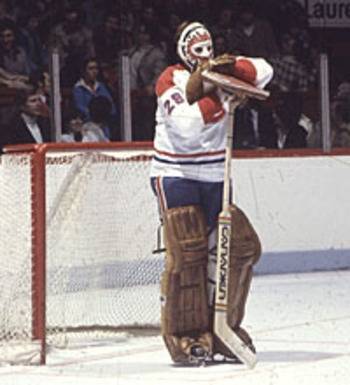Anthony Donskov
Hockey Sense: Installment #11: The 7 Habits of Highly Effective Hockey Players #2
- Font size: Larger Smaller
- Hits: 2523
- Subscribe to this entry
- Bookmark
Maximize “Free Time”:
Potential! Potential is an empty gas tank! The goal is to fill it as much as possible before its too late. Every athletic career has an expiration date; failing to reach your potential will expedite it. Potential is elusive, a shadow in the dark that always tries to escape its pursuer. In order to fill the gas tank, little things matter, deliberate practice is necessary, and commitment and drive are essential. Talent alone will not fill up the tank, nor will resting on yesterday’s accomplishments. In order to reach places one’s never been, miles yet to travel, the tank must always be as close to “full capacity” as possible. It’s your choice. Nothing is guaranteed; potential is just potential until one uses his time wisely!
Growing up, we never played hockey year round. We attended one hockey school each summer (The Doug Crossman hockey school in London, Ontario, Canada). We played multiple sports and had adult-free uninterrupted time. My father loved free time. He never instructed us to shoot 100 pucks; he never placed pylons out for stick work or structured street hockey games. My father believed in free “play”. In my opinion it is this “free play” that helps build hockey sense: small area games, quick thinking, multiple puck touches and razor sharp decision-making. Ken Dryden sums it up eloquently:
“It is in free time that the special player develops, not in the competitive expedience of games, in hour-long practices once a week, in mechanical devotion to packaged, processed, coaching-manual, hockey-school skills. For while skills are necessary, setting out as they do the limits of anything, more is needed to transform those skills into something special. Mostly it is time unencumbered, unhurried, time of a different quality, more time, time to find wrong answers to find a few that are right; time to find your own right answers; time for skills to be practiced to set higher limits, to settle and assimilate and become fully and completely yours, to organize and combine with other skills comfortably and easily in some uniquely personal way, then to be set loose, trusted, to find new instinctive directions to take, to create.

But without such time a player is like a student cramming for exams. His skills are like answers memorized by his body, specific, limited to what is expected, random and separate, with no overviews to organize and bring them together. And for those times when more is demanded, when new unexpected circumstances come up, when answers are asked for things you’ve never learned, when you must intuit and piece together what you already know to find new answers, memorizing isn’t enough. It’s the difference between knowledge and understanding, between a super-achiever and a wise old man. And it’s the difference between a modern suburban player and a player like Lafleur.”
Find a driveway, frozen pond, or local rink and play. Learn, fall, create, imagine, improve, dream, rehearse, re-learn, design, and have FUN. No adults, no interruption, no rules…just the love of the game!
Yours in Hockey
Anthony Donskov
